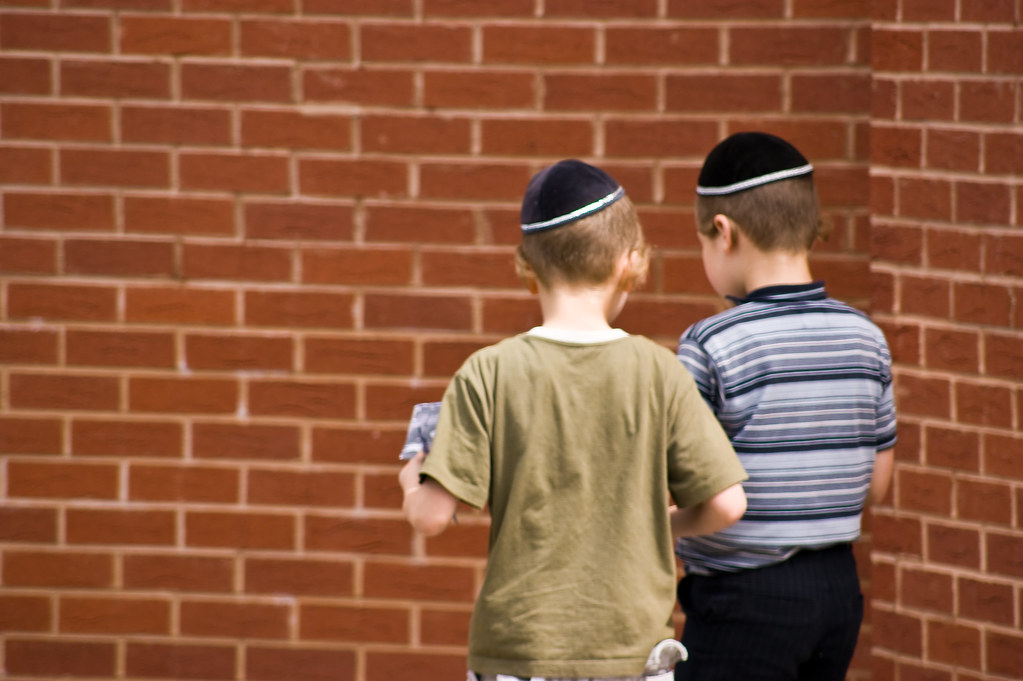by Rabbi Ze’ev Samson in St. Louis Jewish Light
Marc Kornblatt prepared uneasily earlier this year for his daughter, Louisa, to arrive for 10 days with the family. Her homecomings once brought the comfort of movie nights and card games, but this year was different. Marc and his wife, Judith, had moved away from Madison, Wis., to live in Tel Aviv, where they felt a real sense of belonging as Jews. Around the same time, their daughter, attending graduate school at the University of California, Berkeley, came to oppose the existence of Israel as a Jewish state.
American Jews have long maintained a remarkable relationship with Israel. Over the years, our fervent attachment has produced billions of dollars in ongoing philanthropic assistance, a powerful and effective pro-Israel lobby, tens of thousands of visits annually, a steady stream of aliyah (settlement in Israel), and myriad other examples of contact and support. Yet these feelings of attachment are changing in some segments of American Jewry, as warmth gives way to indifference, and indifference sometimes leads to downright alienation from Israel.
Enjoy what you're reading? Subscribe for more!
A young Jewish man was once asked, “Do you think today’s greatest challenge facing the Jewish people is ignorance or apathy?” He responded, “I don’t know, and I don’t care!” A growing number of Jews are declaring themselves as religious “Nones.” These are individuals who self-identify as atheists or agnostics or who indicate that they are disconnected from any formal affiliation with a Jewish religious community or denomination. In the 1990s, this group could be identified within the single digits. Today, with the Jewish unaffiliated more concentrated among young adults than other age cohorts, an astonishing 35% of Millennials (those born 1981-1996) and Gen Z (those born from 1997- 2012) are identified as “Nones.”
Among American Jews 18-29 years, the following data extracted from a recent Pew Study seems particularly relevant:
• 88% seldom or never go to services
• 47% hold the belief that if you believe in Jesus, you can still be considered Jewish
• 51% report having had a Christmas tree
Feeling that being Jewish is more about culture and ancestry than religion, when asked about essential aspects of being Jewish, more than 40% say having a good sense of humor is essential to their Jewish identity, compared to less than 15% who see Torah observance (‘observing Jewish law’) as indispensable.
This growing distancing from a meaningful connection to Judaism among younger American Jews has resulted in their drifting apart from Israel. A recent study by the Jewish Identity Project of Reboot documented that on average, young Jews (35 and under) are considerably less attached to Israel, express less caring for Israel, less engaged with Israel, less supportive of Israel and score lower on overall scale of Israel attachment than Jews older than 35. Young Jewish Millennials and Gen Z increasingly see Israel as an occupying power oppressing Palestinians — a shock to their parents and grandparents, who tend to see it as an essential haven fighting for survival.
What can we, as parents, educators, rabbis, community leaders and the Jewish community at large do to stem the tide of this alarming trend?
Great impact can be achieved by a concerted effort to help young Jews return to their Jewish roots through an understanding of what being Jewish means. Every Jew is a descendant of those who stood at Mt. Sinai 3,300 years ago. When offered the Torah by God, we responded, “We will do and we will hear.” A truly meaningful connection to Judaism is nurtured and expressed by believing and observing “The Ten Commandments” rather than “The Ten Suggestions.” The same is true, of course, with the entirety of the Torah. However, if a Jew looks at the Torah simply as a man-written work, one is free to decide matters of morals, ethics, and how to relate to Israel based upon prevailing societal norms.
I recently had a conversation with a U.S. congressman. He told me he was mystified when he saw young Jews wearing T-shirts that read “Jews for Palestine and Gaza” at a sizeable pro-Palestinian rally. He asked me how to understand his disconcerting experience. I responded: “Our rabbis teach that if a tree has beautiful boughs, great height and a statuesque appearance yet has only shallow roots, the slightest wind can topple that tree. However, a tree with exceptionally deep roots, though of relatively diminutive size and of unremarkable outward appearance, such a tree can withstand hurricane-force winds.”
A Jew with deep roots — connected to his or her people through the Torah given at Sinai and living an educated, committed Jewish life of mitzvot — will never waver in their love of and commitment to Israel. King Solomon said in Proverbs (3:18) “It (the Torah) is a Tree of Life for those who cling to it, and all its supporters are happy.” A tragic 2014 Indian Ocean earthquake and tsunami took the lives of approximately 230,000 people. Petra Nemcova, on vacation in Thailand when the tsunami hit, clung with all her might to a tree for eight hours before she was rescued.
Clinging to the Torah with all one’s might ensures Jewish continuity, nurtures a spiritual, intellectual and emotional connection to God and the Jewish people, and nourishes fervent support and affection for Israel, our God-given homeland.
Photo Credit: Jason Tabarias via Flickr


